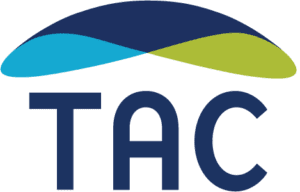THE BOSTON PUBLIC HEALTH COMMISSION‘S (BPHC) Homelessness Services Bureau, operator of some of Boston’s largest congregate emergency shelters for adults, approached TAC in June 2019 about facilitating a large-scale culture transformation in those shelters. BPHC leaders wanted all staff positions, workflows, and capacity-building efforts to have a Housing First lens to serve the more than 5,000 guests who touch the agency’s shelters annually. Their vision included increasing housing activities and services within each shelter; developing special, tailored strategies to serve guests with the longest stays; and strengthening staff capacity to act as savvy housing navigators. BPHC’s most important goal for this culture shift was to enable any shelter staff member — whether a program director, a clinical social worker, a chef, or a security staff officer — to immediately help guests access a housing pathway to resolve their homelessness crisis. As our new clients expressed their vision, I could tell they were looking for authentic, effective, and sustainable culture change; I was excited and inspired to begin the work.
A Strong Start, and then… the COVID Pivot
Together with BPHC leadership, TAC consultants brought together frontline staff, shelter guests, directors, and external agencies in a six-month strategic planning process that culminated in the “Housing Pathways” plan. This plan was built on key values such as “Everyone deserves a home,” “Guests have incredible strengths and resilience,” and “Housing, health, and services are all important in our work.”
Planning discussions were high in energy, and the participating stakeholders forged promising new collaborations. Nevertheless, as an analysis conducted by TAC made plain, BPHC was drastically understaffed relative to the number of guests served. Because of this reality, it was clear to all of us that Housing Pathways would initially be more of a wish list than a roadmap, to be piloted at first only in small ways. From January to March, 2020, BPHC undertook these initial actions with spirit. Interdepartmental teams in which all levels of staffing were represented had contagious momentum, and quickly produced implementation plans that were due in mid-March.
Then, of course, the full arrival of the COVID pandemic changed everything. Implementation stalled as shelter staff instead shifted quickly into disaster preparation mode — developing COVID testing protocols, running testing events, separating beds, and rapidly standing up and staffing brand-new non-congregate shelters to decompress the population. As we all know, the next several months were taken up by the COVID crisis in almost every aspect of social service delivery.
Signs of Recovery
In late 2020, signs of recovery from the pandemic started to sprout as BPHC was awarded millions in CARES Act funds to increase housing activities in its shelters as part of COVID recovery. At the same time, the agency emerged as a leader in spearheading a successful campaign with the Boston Health Care for the Homeless Program and other providers to ensure that all Boston shelters and their staffs had quick, easy access to COVID vaccines. TAC worked with BPHC and Boston Health Care for the Homeless to coordinate a HUD presentation on this vaccine campaign and how it was led with a racial equity lens. And BPHC re-engaged with TAC to leverage its new CARES Act funds to launch a full-scale implementation of the Housing Pathways plan.
As of June 2021, Housing Pathways — the plan that started out as a lofty, underfunded wish list — has been fully launched. Guests who face high barriers to leaving shelter are provided with intensive services by interdisciplinary housing and behavioral health teams to help them move on; a specialized HOPE team is assigned to 150 of the longest stayers in the shelters to provide clinical engagement, services, basic needs, and access to low-barrier housing; and robust rapid rehousing options are available to interested guests. In keeping with leaders’ initial vision, every staff member in every department now has the ability to help guests get on a housing pathway, thanks to extensive training; clear, simple workflows; and change management strategies that have fostered buy-in throughout the staff to incorporate Housing First into guest interactions. Leadership and implementation teams meet weekly to do continuous quality improvement on the system they have built.
As a technical assistance provider, it has been an honor and a privilege to witness this particular agency’s resilience, recovery, and innovation during the COVID pandemic. But there are two lessons I learned from this engagement that certainly have relevance beyond Boston, and even beyond the extraordinary circumstances of this past year:
Fidelity to the Plan Will See You Through
An empowering strategic planning process builds deep commitment to the resulting plan, and this commitment can survive even in times of stress or disaster. The creation of Housing Pathways was rooted in principles of empowerment, stakeholder collaboration, and consensus. Even when progress stalled during the height of the pandemic, several hundred guests made the move to permanent housing, and the leadership team never lost fidelity to the core mission, purpose, and values of the plan. By finding small ways to pilot some aspects of Housing Pathways, BPHC helped to keep the mission alive.
Change Management is Essential to Leading Culture Shifts
Throughout planning and implementation, BPHC leveraged technical assistance explicitly to lead its process with change management strategies. Now, even as implementation moves ahead with urgency, the leadership team always takes the time to slow down and process new change with staff by starting with small, incremental steps and relying on real-time input from staff and guests. Clear, streamlined messaging is shared with all staff at each stage. Mindful of the traumatic upheaval that both staff and guests experienced during the first COVID surge, leaders are ensuring that change management values remain centered.
Resilience + Recovery
During the first COVID surge in March and April of 2020, I saw my BPHC colleagues experience a full upheaval of their jobs as the top priority became keeping our neighbors who were without homes as safe as possible from COVID. Schedules changed drastically as staff members were redeployed to assist with operating new shelters, and in spite of all precautions they nevertheless risked contracting COVID and spreading it to their loved ones. Throughout the pandemic, they would always assure me that they must keep moving their Housing Pathways plan forward as much as possible, pointing out that if they waited for all emergencies to subside, they would never make any progress. This past January, BPHC staff and guests had access to some of the earliest vaccine doses in Massachusetts because of the state’s pivotal decision to prioritize congregate settings in its first vaccination phase.
I’ve watched my colleagues come back from the pandemic even stronger, with its lessons and innovations informing their implementation of the Housing Pathways plan. Now they are embarking on new phases of the work, including experiential learning efforts to continue the Housing First culture growth within the organization, as well as evaluating their progress against their desired outcomes: shorter lengths of stay in shelter; fewer first-time entries into shelter, particularly from institutions such as corrections or hospitals; increased placements to permanent housing; and increased connections to behavioral health and other community supports to ensure stays at their shelters are only one-time. They are change-makers, heroes, social justice warriors. They are transforming their shelter to put Housing First in everything they do. They have also transformed me as I’ve been able to witness their character, resilience, and tenacity in serving people without homes.



